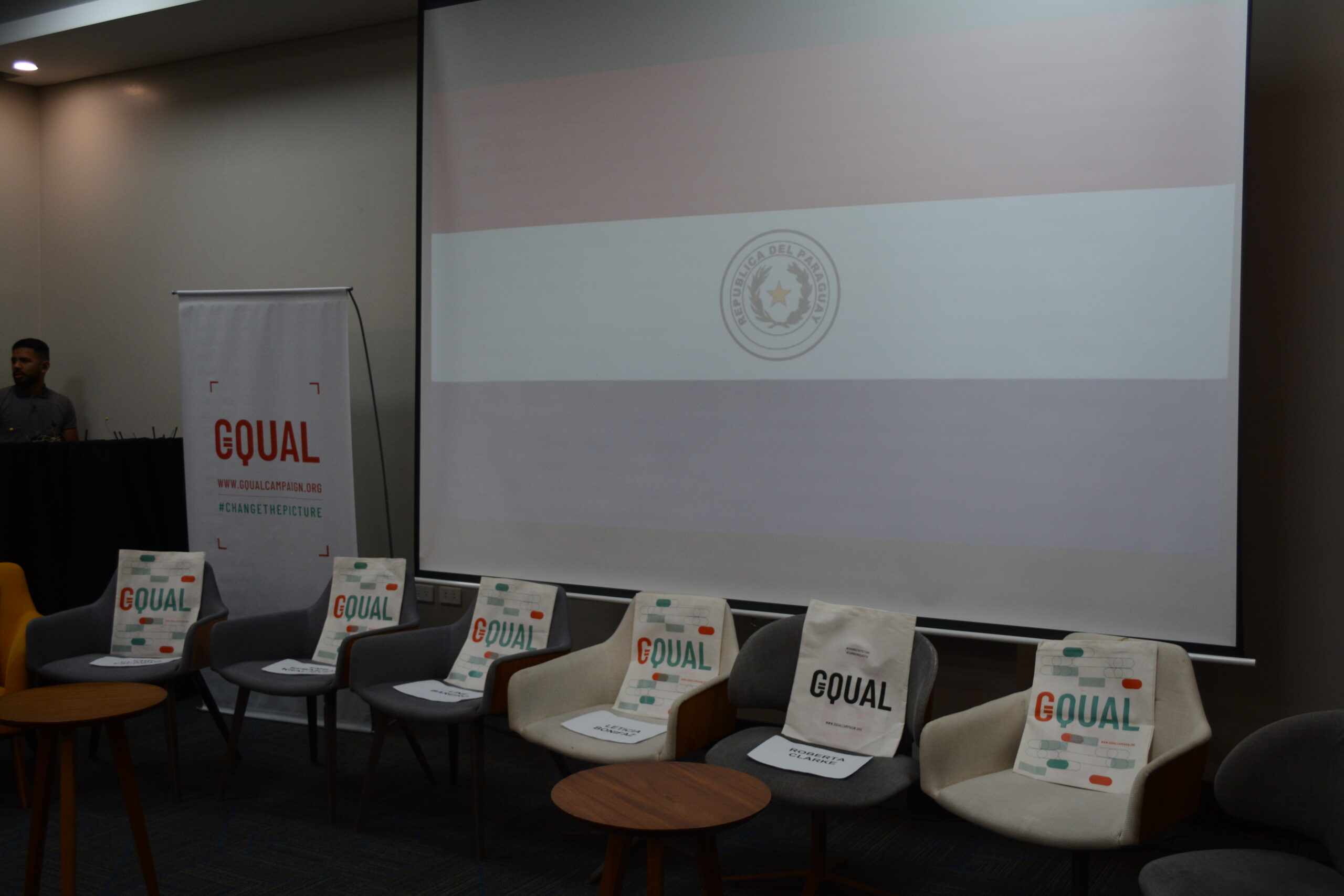Moving towards parity: reflections from the 54th OAS General Assembly on gender equality in international decision-making
-
The GQUAL campaign organized a side event to discuss the place of women in international and multilateral decision-making spaces.
-
A large group of representatives from States in the region and experts in the field participated and highlighted proposals for the advancement of parity in the OAS.
-
To date, neither the UN nor the OAS has had a woman as Secretary General. Both positions will be elected next year, requiring the States of the region to act in a manner consistent with the principle of equality.
Within the framework of the 54th OAS General Assembly, the GQUAL Campaign, with the support of the Inter-American Commission of Women (CIM), organized an event entitled “Gender Equality in International and Multilateral Decision-Making Spaces”, in which the necessary measures to achieve gender parity in the OAS and in international spaces were discussed. The event was attended by representatives from Chile, Canada, Guatemala, the United States and Spain, as well as representatives of the IACHR, the CIM, the CEDAW Committee and civil society.
María Noel Leoni, Director of GQUAL and Deputy Executive Director of CEJIL, began the dialogue by sharing compelling data on where women are in international decision-making spaces. “According to UN Women, only one fifth of the ambassadors leading diplomatic missions and 16% of the people participating in peace negotiation delegations are women. Likewise, according to data compiled by GQUAL, women occupy around 40% of positions in human rights courts, bodies and mechanisms,” said Leoni.
She also highlighted a relevant fact for the entire region: neither the UN nor the OAS have had a female Secretary General so far. Both positions are up for election in 2025 and Latin America has a fundamental role to play. In the case of the OAS there are currently only two male candidates officially presented by Suriname and Paraguay.
Participants in the first block of exchanges included Alejandra Mora, Executive Secretary of the CIM, Roberta Clarke, President of the Inter-American Commission on Human Rights (IACHR), Leticia Bonifaz Alfonzo, Member of the UN Committee on the Elimination of Discrimination against Women (CEDAW), and Line Bareiro, Researcher at the Center for Documentation and Studies (CDE-Paraguay) and Professor at PRIGEPP (FLACSO-Argentina). Among other things, CIM’s efforts to consolidate gender parity in the OAS as an institutional measure were highlighted, including the parity plan adopted by the Secretary General, the report on parity in human rights bodies presented to the General Assembly, and a draft Model Law on Parity for the region that includes the international sphere. Within the United Nations, the relevance of the future General Recommendation No. 40 of the CEDAW Committee (to be approved in October 2024) on the right to equal and inclusive participation of women in decision-making spaces, including international spaces,—which defines parity as a mandatory and permanent measure for the equal distribution and exercise of power,—was highlighted.
In the second block, participants included Ambassador Sebastián Kraljevich, Permanent Representative of Chile to the OAS, Ambassador Claudia Escobar, Permanent Representative of Guatemala to the OAS, Suzanne B. Goldberg, Senior Advisor to the Assistant Secretary for Civilian Security, Democracy and Human Rights, U.S. Department of State, Ambassador Stuart Savage, Permanent Representative of Canada to the OAS, and Ambassador Carmen Montón, Permanent Observer Representative of the Kingdom of Spain to the OAS. They highlighted the progress that States have made towards parity and representative democracies, as well as political commitments that have sought to promote progress towards parity as an institutional measure in the OAS. Among the measures, Chile announced the presentation of a proposal for consideration by the General Assembly, which could allow the deadlines for the presentation of women candidates to be extended when the nominations are not gender-balanced. The United States and Canada highlighted the presentation of proposed resolutions, also for consideration by the GA, that promote gender parity in the membership of the IACHR and the IACHR Court and encourage States to develop national selection processes that are transparent and promote equality. Spain, for its part, highlighted the measures promoted by its feminist foreign policy, including the government’s call to establish gender alternation in the Presidency of the UN General Assembly and the election of the Secretary General.
The meeting closed with closing remarks by Viviana Krsticevic, Executive Director of CEJIL and Member of the GQUAL Secretariat, who emphasized that there is clear agreement on the importance of promoting women’s equal participation in these spaces as a key measure for equality, legitimacy, justice, democracy, and strengthening the impact and functioning of international organizations. “The numbers reflect that to sustain gender balance it is necessary to crystallize national processes, and measures at the regional level that sustain parity in the different spaces, including the revision of the nomination and voting systems of the treaties,” concluded Krsticevic.
The presence of women in decision-making spaces is fundamental to guarantee democratic and pluralistic debates. The event concluded with a strong agreement that these commitments will be at stake in 2025, when the OAS and UN must appoint a new person to the position of their respective General Secretariats. History and equality demand that Latin America take this opportunity to ensure that those higher glass ceilings are broken for the first time.




